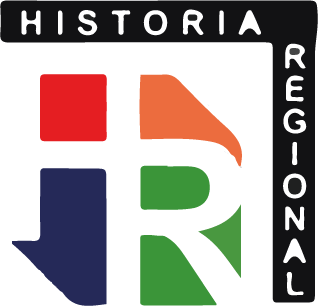“The Penuries of the Precursors”. A study of FAP (Fuerzas Armadas Peronistas) experience
Main Article Content
Abstract
Inside the field known as combative peronismo, we will study the experience of FAP (Fuerzas Armadas Peronistas). The objective of this work is analyze the circumstances and details that defined the relationship between this armed organization and the whole group of combative peronismo, between FAP and the rest of The Justicialista Movement and between FAP and Perón; taking into consideration the peculiar political juncture in Argentina at the end of ’60s and the beginning of ‘70s. The main hypothesis presented in this work, suggests that a good part of the prolegomenon experienced by FAP; many of its tactic and strategic decisions; some of its scissions and its hard internal disputes; as well as its perceptions about political juncture and about the role played by Perón and the whole Justicialista Movement; were conditioned by the better position that Montoneros hold inside the particular filed known as combative peronismo.
Downloads
Download data is not yet available.
Article Details
How to Cite
Divito, H. (2005). “The Penuries of the Precursors”. A study of FAP (Fuerzas Armadas Peronistas) experience. Historia Regional, (23), 27-40. Retrieved from https://historiaregional.org/ojs/index.php/historiaregional/article/view/216
Issue
Section
Articles

This work is licensed under a Creative Commons Attribution 4.0 International License.
Los autores que publican en esta revista están de acuerdo con los siguientes términos:
- Los autores conservan los derechos de autor y garantizan a la revista el derecho de ser la primera publicación del trabajo al igual que licenciado bajo una Creative Commons Attribution License que permite a otros compartir el trabajo con un reconocimiento de la autoría del trabajo y la publicación inicial en esta revista.
- Los autores pueden establecer por separado acuerdos adicionales para la distribución no exclusiva de la versión de la obra publicada en la revista (por ejemplo, situarlo en un repositorio institucional o publicarlo en un libro), con un reconocimiento de su publicación inicial en esta revista.
- Se permite y se anima a los autores a difundir sus trabajos electrónicamente (por ejemplo, en repositorios institucionales o en su propio sitio web) antes y durante el proceso de envío, ya que puede dar lugar a intercambios productivos, así como a una citación más temprana y mayor de los trabajos publicados (Véase The Effect of Open Access) (en inglés).
References
ANGUITA, Eduardo y CAPARRÓS, Martín. La voluntad, Norma. Buenos Aires. 1998. tres tomos.
BASCHETTI, Roberto. Documentos 1970-1976, De la campana. La Plata. 1995. dos tomos.
BASCHETTI, Roberto. Documentos de la resistencia peronista 1950-1970. Puntosur. Buenos Aires. 1988.
BOURDIEU, Pierre y WACQUANT, Loic: Respuestas por una antropología reflexiva. Grijalbo. México. 1995.
BOURDIEU, Pierre. ¿Qué significa hablar? Akal. Madrid. 1999.
BOURDIEU, Pierre. Cosas dichas. Gedisa. Buenos Aires. 1988.
BOURDIEU, Pierre. Cuestiones de sociología. Istmo. Madrid. 2000.
BOURDIEU, Pierre. Razones prácticas. Anagrama. Barcelona. 1998.
BOURDIEU, Pierre. Sociología y cultura. Grijalbo. México. 1990.
CÁMPORA, Héctor: La revolución peronista. EUDEBA. Buenos Aires. 1973.
DUHALDE, Eduardo y PÉREZ, Eduardo. De Taco Ralo a la Alternativa Independiente. De la Campana. La Plata. 2001.
GILLESPIE, Richard. “Armed Struggle in Argentina” En: Studies in Comparative International Developement, Editor Jay Weinstein, New Scholar 8, New Yersey, 1982.
GILLESPIE, Richard. “Political Violence in Argentina: Guerrillas, Terrorists and Carapintadas” En: CRENSHAW, Martha (ed.) Terrorism in Context, Pennsylvania State University Press, Pennsylvania, 1995.
GILLESPIE, Richard. “The Urban Guerrilla in Latin America” En: O’SULLIVAN, Noel (ed); Terrorism, Ideology and Revolution, Brighton, 1986.
GILLESPIE, Richard. J. W. Cooke: el peronismo alternativo. Cántaro. Buenos Aires, 1989.
GILLESPIE, Richard. Soldados de Perón. Grijalbo. Buenos Aires. 1987.
JAMES, Daniel. Resistencia e integración. Sudamericana. Buenos Aires. 1999.
POTASH, Robert. El ejército y la política en la Argentina 1962-1973, Sudamericana, 1994. dos tomos.
RAIMUNDO, Marcelo. “En torno a los orígenes del peronismo revolucionario. El Movimiento Revolucionario Peronista (1964-1966)”. En: Taller. Buenos Aires, N° 12, Abril de 2000.
VERBITSKY, Horacio. Ezeiza. Contrapunto. Buenos Aires. 1986.
BASCHETTI, Roberto. Documentos 1970-1976, De la campana. La Plata. 1995. dos tomos.
BASCHETTI, Roberto. Documentos de la resistencia peronista 1950-1970. Puntosur. Buenos Aires. 1988.
BOURDIEU, Pierre y WACQUANT, Loic: Respuestas por una antropología reflexiva. Grijalbo. México. 1995.
BOURDIEU, Pierre. ¿Qué significa hablar? Akal. Madrid. 1999.
BOURDIEU, Pierre. Cosas dichas. Gedisa. Buenos Aires. 1988.
BOURDIEU, Pierre. Cuestiones de sociología. Istmo. Madrid. 2000.
BOURDIEU, Pierre. Razones prácticas. Anagrama. Barcelona. 1998.
BOURDIEU, Pierre. Sociología y cultura. Grijalbo. México. 1990.
CÁMPORA, Héctor: La revolución peronista. EUDEBA. Buenos Aires. 1973.
DUHALDE, Eduardo y PÉREZ, Eduardo. De Taco Ralo a la Alternativa Independiente. De la Campana. La Plata. 2001.
GILLESPIE, Richard. “Armed Struggle in Argentina” En: Studies in Comparative International Developement, Editor Jay Weinstein, New Scholar 8, New Yersey, 1982.
GILLESPIE, Richard. “Political Violence in Argentina: Guerrillas, Terrorists and Carapintadas” En: CRENSHAW, Martha (ed.) Terrorism in Context, Pennsylvania State University Press, Pennsylvania, 1995.
GILLESPIE, Richard. “The Urban Guerrilla in Latin America” En: O’SULLIVAN, Noel (ed); Terrorism, Ideology and Revolution, Brighton, 1986.
GILLESPIE, Richard. J. W. Cooke: el peronismo alternativo. Cántaro. Buenos Aires, 1989.
GILLESPIE, Richard. Soldados de Perón. Grijalbo. Buenos Aires. 1987.
JAMES, Daniel. Resistencia e integración. Sudamericana. Buenos Aires. 1999.
POTASH, Robert. El ejército y la política en la Argentina 1962-1973, Sudamericana, 1994. dos tomos.
RAIMUNDO, Marcelo. “En torno a los orígenes del peronismo revolucionario. El Movimiento Revolucionario Peronista (1964-1966)”. En: Taller. Buenos Aires, N° 12, Abril de 2000.
VERBITSKY, Horacio. Ezeiza. Contrapunto. Buenos Aires. 1986.

